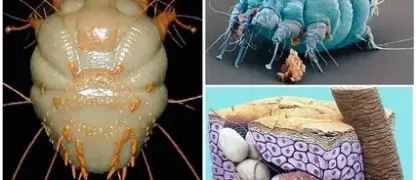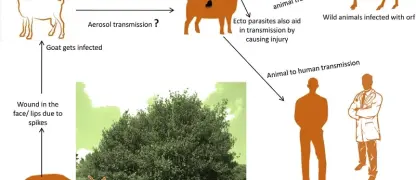Don't let these small bumps become a big worry. Understanding what is molluscum contagiosum is the key to managing it effectively and preventing its spread to others or different parts of your body, especially in children and adults.
What are the main causes of Molluscum Contagiosum?
- The infection is caused by a member of the poxvirus family, which thrives in warm, humid environments and is highly contagious through contact.
- How is molluscum spread? It's primarily through direct skin-to-skin contact, which is why molluscum contagiosum in children is very common during play.
- The virus can also be transmitted by touching contaminated objects, known as fomites, such as towels, toys, or shared sports equipment.
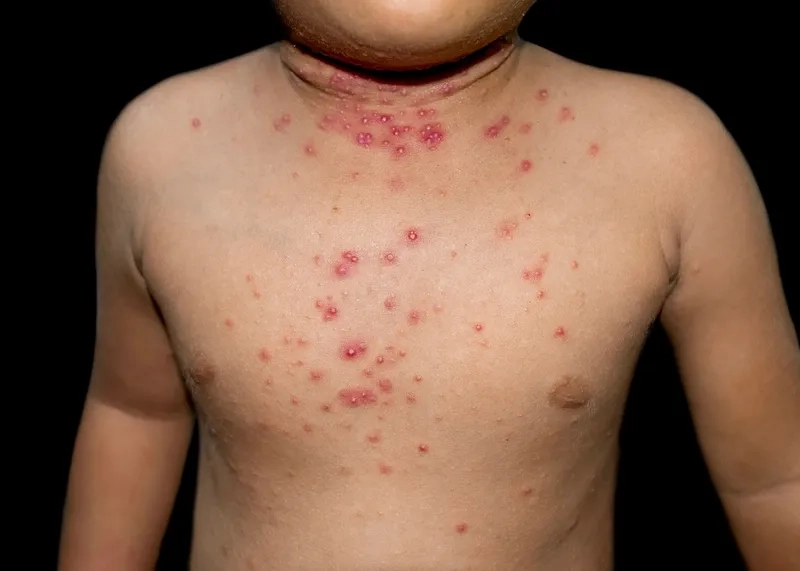
Key symptoms of Molluscum Contagiosum to watch for
- The main molluscum contagiosum symptoms are small, firm, dome-shaped skin bumps that are flesh-coloured or pink and have a central dimple.
- These bumps can appear anywhere, including the molluscum on face, neck, arms, and trunk, which is a concern for many molluscum contagiosum adults.
- Unlike the rough texture in molluscum vs warts, these lesions are typically smooth and can become itchy, red, or swollen if scratched.
How can you prevent Molluscum Contagiosum effectively?
- Effective prevention involves practicing good hygiene, avoiding scratching the bumps, and keeping them covered with clothing or a waterproof bandage to prevent spread.
- For how to get rid of molluscum, professional molluscum contagiosum removal options can shorten the typical molluscum duration of 6-12 months.
- A common molluscum contagiosum treatment performed by dermatologists is cantharidin treatment, which painlessly creates a small blister to remove the lesion.
>>> See more: Herpes simplex virus - A guide to oral and genital herpes
Pictures of molluscum contagiosum on the skin

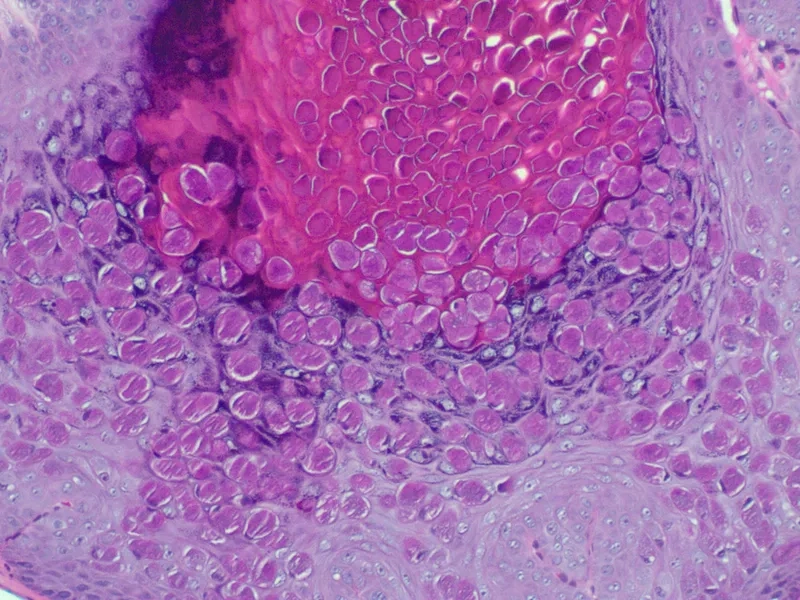
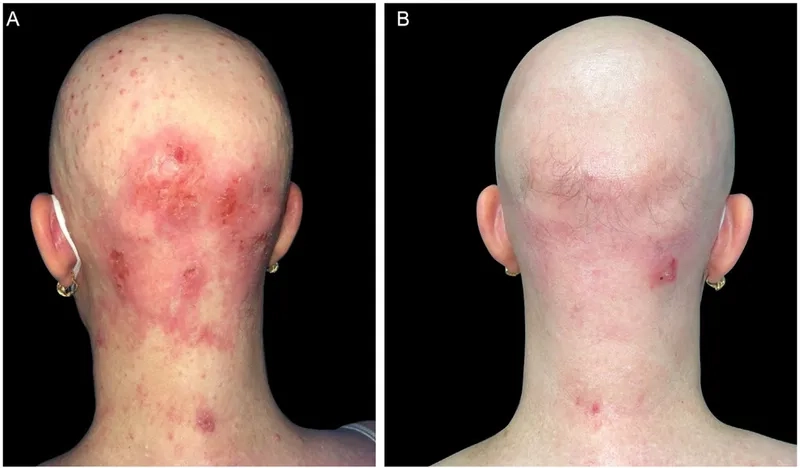

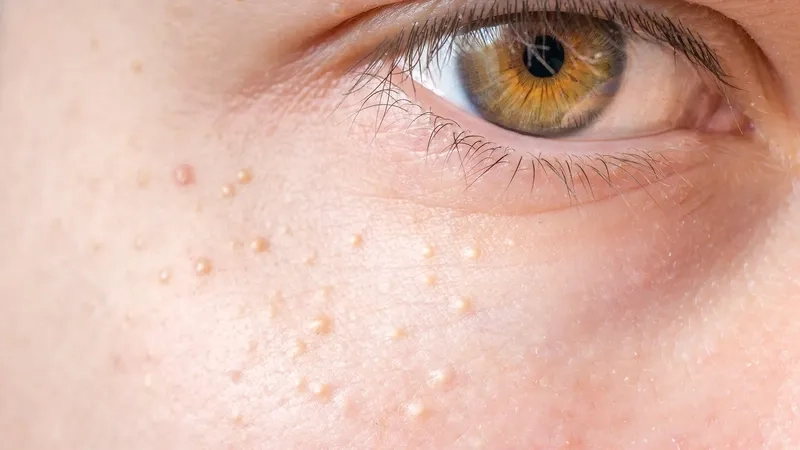
A specialist applying cantharidin treatment to lesions
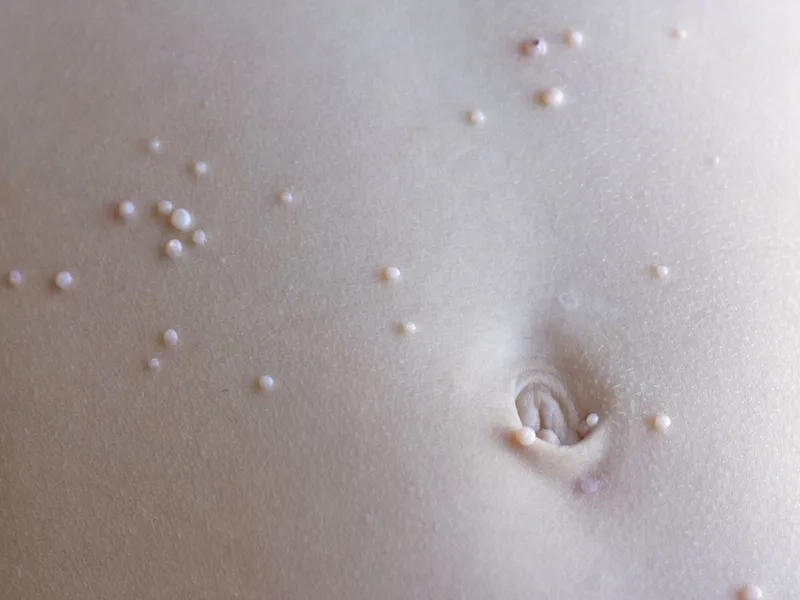
>>> Find out together: Human bocavirus - A common cause of respiratory illness in kids
While often self-resolving, professional advice is recommended, especially for widespread cases, compromised immunity, or cosmetic concerns. Consult a dermatologist to discuss the best treatment plan for you or your child to prevent further spread.
>>> Don't miss: Infectious mononucleosis - The kissing disease explained


